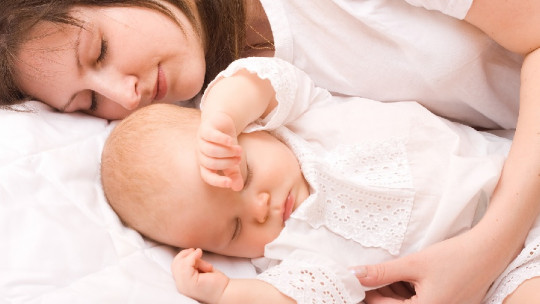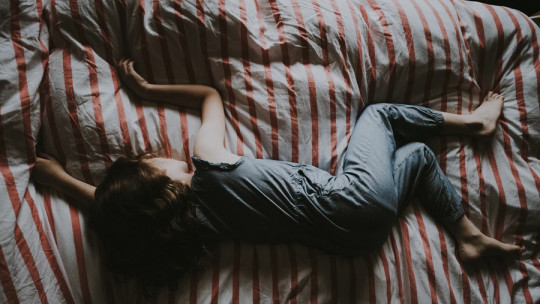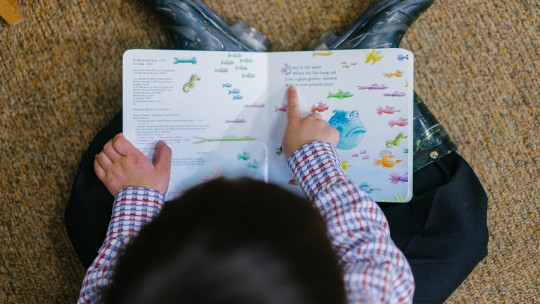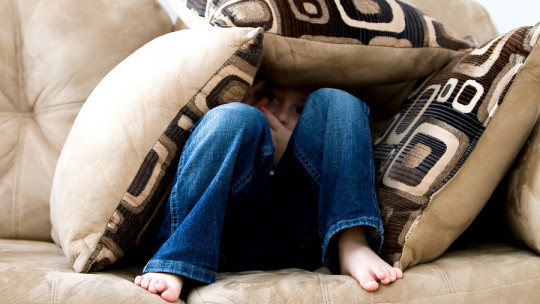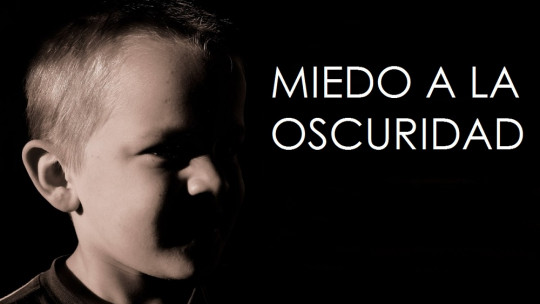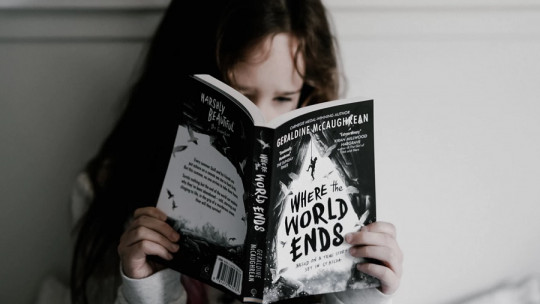Although it may sound a little strange, you can also learn to sleep! And, like other behaviors, it is also a habit, essential for the development of the little ones. Thus, it is important that children learn to sleep alone, in their bed.
Now, in many families there is a concern that is repeated over and over again: “What happens if my child is afraid of sleeping alone? “. In this article we answer these and other questions, and we give you guidelines to face this challenge, keep reading!
My son is afraid to sleep alone and it worries me
During childhood, and in the full stage of development, boys and girls learn a series of habits and behaviors that will gradually reinforce their autonomy. Among these habits we find sleeping alone, since this behavior is also learned.
The ideal is that from a young age they learn to sleep in their own bed ; That is, as babies, they should have their own crib, and parents should get used to always taking them to sleep in it, and not in their own (the parents’) crib.
Although it is true that when we educate we must also be flexible, and that sometimes the boy or girl ends up sleeping in the parents’ bed (because he or she is sick, has nightmares, fears, etc.), these should be specific acts, since the longer it takes to sleep 100% in your bed, the more difficult it will be for you to get used to it.
Thus, sleeping alone is a habit of autonomy that is learned over time, and parents should play an active role in this good practice.
The fact that the boy or girl gets used to sleeping in their parents’ bed, can cause the following problem: being afraid of sleeping alone Luckily, it is something that can be worked on, and that is why in this article we will see a series of guidelines so that your child ends up sleeping alone, in his/her own bed and without fear.
Guidelines to encourage sleeping alone in childhood
In order for our child to lose his fear of sleeping alone, we must apply a series of guidelines when going to sleep that encourage his autonomy and reduce his anxiety.
1. Establish a routine
Children, like adults, need routines and guidelines when going to sleep (sleep hygiene), since this, in addition to facilitating sleep, will help us enhance the autonomy and security of our children at bedtime. to sleep alone.
Thus, the ideal is for them to get used to sleeping in their own bed, and at approximately the same time. If they come to our bed, we must accompany them to theirs, as many times as necessary Ideally, we should not enter into debates or discussions with them. First, we must explain it clearly (next point).
Routines help reduce children’s anxiety and structure their daily lives and time. What should your bedtime routine include? Some ideas are: cleaning your teeth, a story or a song, a hot shower, a glass of milk, cuddles, etc. All this will help us educate our child’s sleep.
2. Explain things well
Depending on the age of our child, we must adapt our language to their understanding ; In the event that she is already at an age to reason and understand, we will explain to her that she is too old to sleep alone, and that she cannot sleep in mom and dad’s bed (or one of the two).
We will explain to you that, if you come, you will have to return to your bed (accompanying you or not, depending on your age).
3. Sleep in the same place
Although this guideline would also be part of the routines, we include it here because it is an important point. So, The ideal is for our child to have a room and a bed to sleep in (always the same), and that we avoid unnecessary changes, since this would make the process difficult.
4. Take care of the environmental conditions
The room must be quiet, without disturbing noises, and the bed and mattress, appropriate for their age, height and weight In addition, the temperature must also be controlled (a room temperature, neither too cold nor too hot).
5. Reinforce him when he sleeps alone
Another very important aspect is to reinforce all those nights in which the child has been able to sleep alone, especially the first ones (after some time it is no longer necessary). Thus, we can reinforce it with praise, a hug, a gesture, a small reward, etc.
At what age should you sleep alone?
After everything discussed (or even before), the following question may arise: From what age is it recommended that our child sleep alone?
Although each child is different, and you will have to be flexible with it, the truth is that from the age of 3, the ideal is for the child to sleep alone and autonomously (without having to go to the children’s bed). parents at midnight or directly sleep with them). The fact that this process is delayed could hinder the child’s autonomy and security and cause him to acquire a certain fear of sleeping alone.
What to do about nightmares?
Children often suffer from nightmares or night terrors, a sleep disorder different from nightmares. This can cause some anxiety and fear of sleeping alone, and it is totally understandable and normal However, our role as parents should be to reassure them when this happens, but not to make it an obstacle for them to sleep alone.
The goal is for the child to learn to overcome these fears and “tolerate” nightmares if they occur. In addition, there are also techniques to treat nightmares or night terrors, such as Imagery Rehearsal Therapy (IRT), widely used for nightmares.
On the other hand, when the child wakes up screaming or crying because he or she has had a nightmare or night terror, We can go to his bed to calm him down, but prevent him from coming to sleep with us (especially when the child begins to “be older”).
Consequences of (not) sleeping alone
The fact that our child does not learn to sleep alone, or this necessary stage for his development is delayed, can have a series of negative consequences for his well-being. These affect his development, and are from emotional dependence on parents (excessive), to insecurities or difficulties in carrying out other tasks that promote their autonomy. We not only have to take into account the negative consequences of our child sleeping (still) with us, but also the positive consequences of him sleeping alone in his bed.
In this way, by educating in sleep we also educate in autonomy, and we enhance such important aspects in its development as: self-esteem, security, independence, etc.


